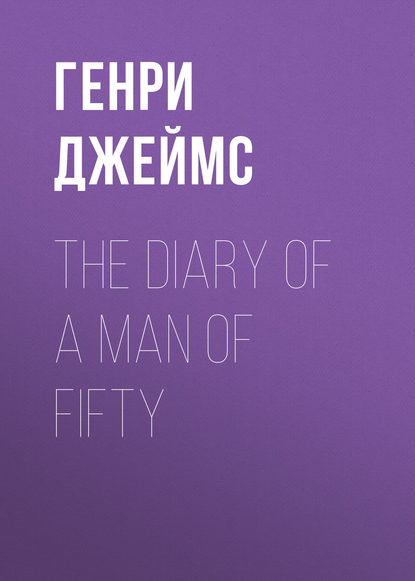По всем вопросам обращайтесь на: info@litportal.ru
(©) 2003-2024.
✖
The Diary of a Man of Fifty
Настройки чтения
Размер шрифта
Высота строк
Поля
“You forget that I do know her.”
“Oh no, you don’t; you never did.” And he gave a little significant laugh.
I didn’t feel like facing the ci-devant Scarabelli at that moment; so I said that I was leaving the house, but that I would do myself the honour of calling upon his wife. We talked for a minute of something else, and then, suddenly breaking off and looking at me, he laid his hand on my arm. I must do him the justice to say that he looks felicitous.
“Depend upon it you were wrong!” he said.
“My dear young friend,” I answered, “imagine the alacrity with which I concede it.”
Something else again was spoken of, but in an instant he repeated his movement.
“Depend upon it you were wrong.”
“I am sure the Countess has forgiven me,” I said, “and in that case you ought to bear no grudge. As I have had the honour to say, I will call upon her immediately.”
“I was not alluding to my wife,” he answered. “I was thinking of your own story.”
“My own story?”
“So many years ago. Was it not rather a mistake?”
I looked at him a moment; he’s positively rosy.
“That’s not a question to solve in a London crush.”
And I turned away.
22d.—I haven’t yet called on the ci-devant; I am afraid of finding her at home. And that boy’s words have been thrumming in my ears—“Depend upon it you were wrong. Wasn’t it rather a mistake?” Was I wrong—was it a mistake? Was I too cautions—too suspicious—too logical? Was it really a protector she needed—a man who might have helped her? Would it have been for his benefit to believe in her, and was her fault only that I had forsaken her? Was the poor woman very unhappy? God forgive me, how the questions come crowding in! If I marred her happiness, I certainly didn’t make my own. And I might have made it—eh? That’s a charming discovery for a man of my age!

















